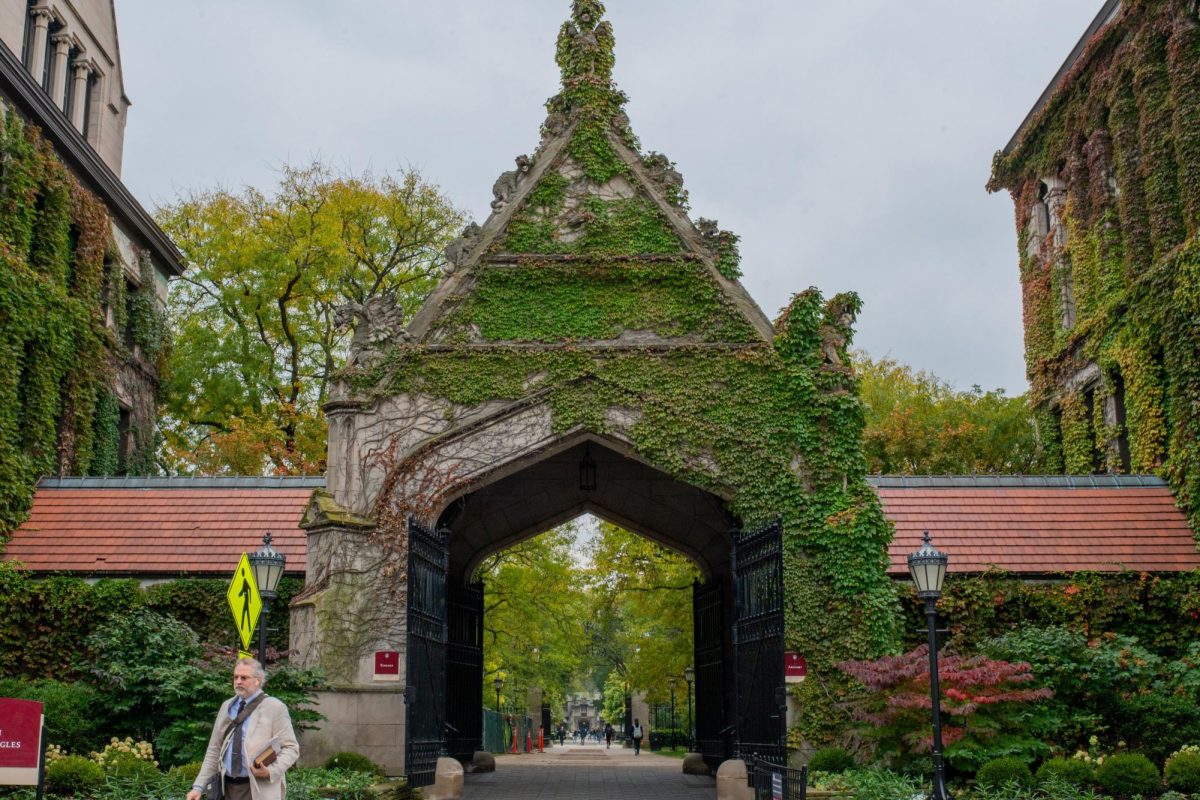The situation at a glance…
The Kalven Report
In the politically turbulent 1960s the University of Chicago president appointed a committee to define the role of the university in terms of “political and social action.” The committee, chaired by law professor Harry Kalven Jr., determined that most political statements — with a few exceptions — made by any University of Chicago department or unit could undermine the diverse perspectives of individuals and exclude minority views. The findings, known as the Kalven report, formalize the university’s neutrality in political matters.
Land Acknowledgement
In 2021, the Laboratory Schools science department decided to create a land acknowledgement statement. Given the history of science largely excluding non-Western philosophies, members of the department said they saw value in having a land acknowledgement statement which was included along with their own statements about diversity, equity and inclusion and climate change, found in syllabuses. Land acknowledgements are formal expressions of recognition for Indigenous peoples who preceded European colonizers.
The University’s Choice
After the science department’s land acknowledgement was brought to the university administrators’ attention, they notified Laboratory Schools Director Tori Jueds that such a statement was in conflict with the Kalven report. Ms. Jueds informed the U-High faculty of this at the Oct. 4 faculty meeting, explaining why the university made this decision, emphasizing that individuals can still express their opinions, like including personal land acknowledgement statements in their syllabi. Before it was removed, the science department’s statement acknowledged the Ojibwe, Odawa, Potawatomi and other Indigenous peoples.
—— —
Since the University of Chicago notified Laboratory Schools Director Tori Jueds that land acknowledgement statements are political, and therefore in conflict with a 1967 university report on political statements, U-High faculty have questioned whether the decision aligns with the institution’s mission to honor diversity.
Ms. Jueds informed U-High faculty of the decision at the Oct. 4 faculty meeting. She also said individuals have their right to free expression, including writing personal land acknowledgment statements.
Sari Hernández, an English teacher, voiced her disappointment at the meeting, advocating for the importance of land acknowledgements.
In an interview with the Midway, Ms. Hernández said, “Are land acknowledgement statements the most important thing that will actually help right some of the wrongs that Indigenous people face day to day? No. But if we can’t even agree that it is important to acknowledge the historical past, then how do we do the other things?”
Daniel Bobo-Jones, faculty chair and a science teacher, said Ms. Hernández’s response to the announcement gave him, and possibly other faculty, a deeper understanding of the subject.
“Anybody in that room that belongs to a marginalized group had the same kind of gut-wrenching punch. Because, as we know, with a lot of things, they have cascading ripple effects,” Mr. Bobo-Jones said.
The Kalven report states the university should remain neutral to encourage people to express a range of ideas.
“The neutrality of the University as an institution arises then not from a lack of courage nor out of indifference and insensitivity. It arises out of respect for free inquiry and the obligation to cherish a diversity of viewpoints,” it reads.
Some faculty members worry about how far interpretations of the Kalven report might be taken.
Mr. Bobo-Jones said, “On one level, the DEI statement is seen as mission-oriented. But does it have to be? Is there some way the legal team at the university might one day say, ‘This is a political act,’ and we can’t do it? That’s a fear that I think every person of any group that has ever been oppressed constantly has in the back of the mind.”
Ms. Hernández said she disagrees with the suggestion that a land acknowledgement statement is political and was personally hurt by the decision.
“I would think that based on the things that the university says about diversity, equity and inclusion that they would — I would have hoped that they would — have been willing to actually stand with Indigenous people,” Ms. Hernández said.
Ms. Jueds said she believes there are different ways to interpret the Kalven report.
“Reasonable people could say, ‘Yes, this is a political statement and Kalven prohibits the university and its units from issuing such a statement,’” she said. “And reasonable people could say, ‘This is not political — this is not prohibited by Kalven.’”
Regardless, Ms. Jueds said she hopes that community members will uphold values through their actions.
“Words matter,” she said. “Words matter a great deal. But actions also matter. And I think some might argue that actions matter more.”























































Danny • Dec 14, 2023 at 12:29 pm
Did U of C steal the land? No. Will it give it back? No. This accomplishes nothing but virtue signaling. Many people lived at different times on the land since the first visitors crossed the Bering Straits, including later Europeans. No one has one claim on the land and thousands of peoples call Chicago home too. Many indigenous don’t believe anyone owns it. The statement that science is Western is wrong anyway. It is the only known way to learn the truth without personal bias, and it is international, belonging to all. It is wrong to reach students that it is only a Western tradition. It seems academic standards in our universities are worsening day by day, with brainwashing replacing reasoning. If you allow that in, then on what grounds can you disallow Christian beliefs, or the beliefs of any other prior inhabitants? I’m glad the University clamped down on this obvious attempt to further politicize education and develop a generation of mindless robots. It should stand neutral.
Vivi C '20 • Oct 24, 2023 at 7:07 pm
Go Ms. Hernandez (as always)!